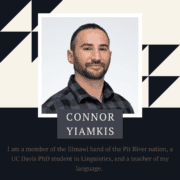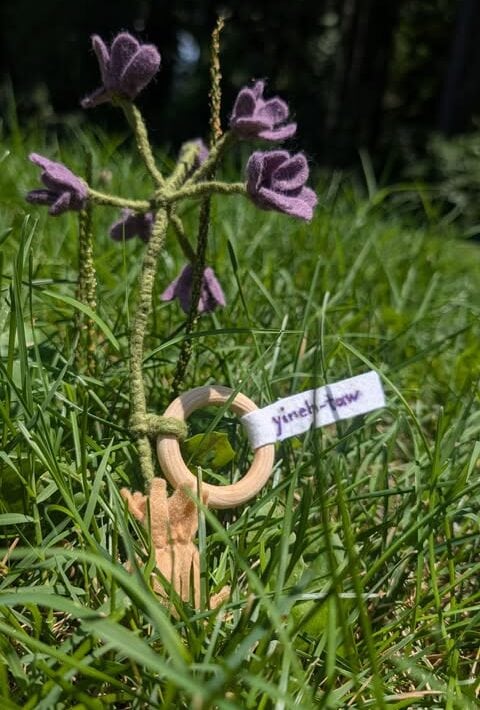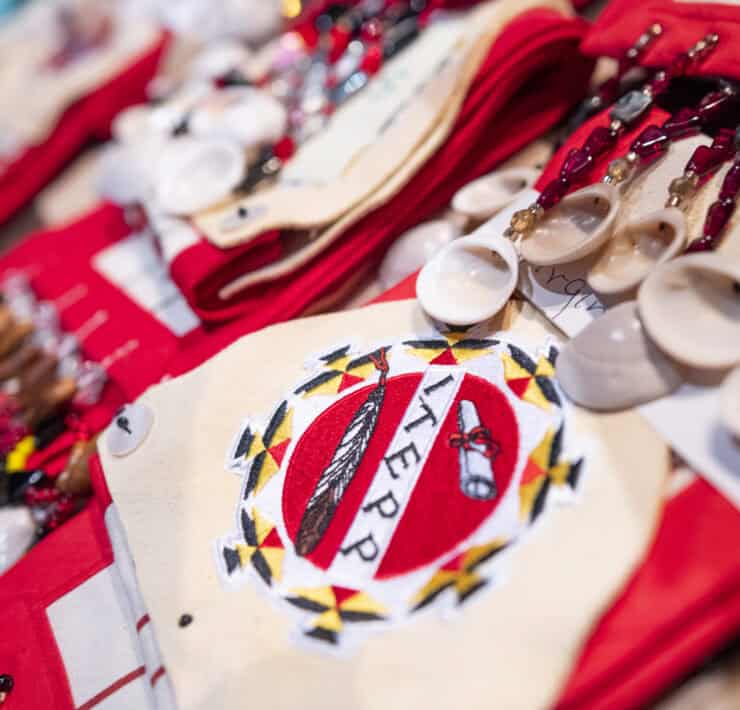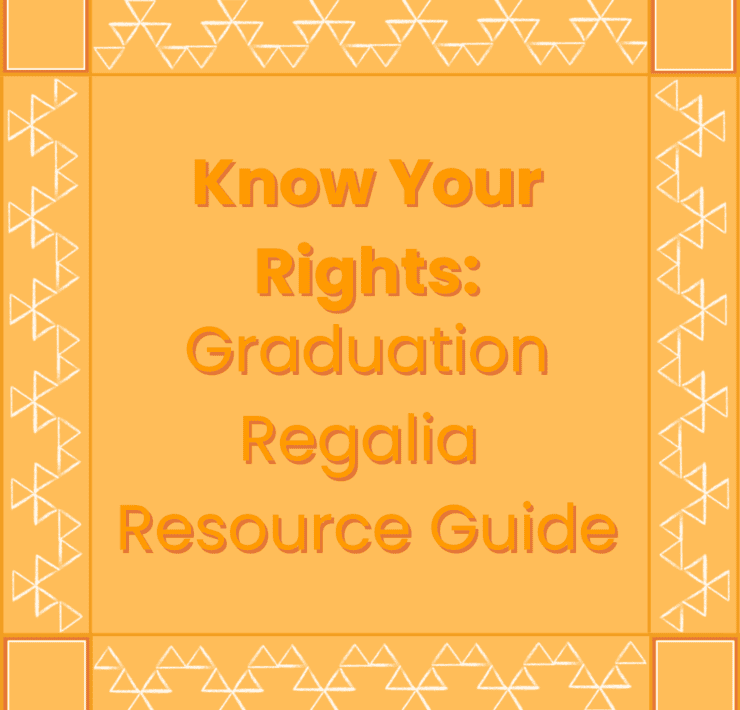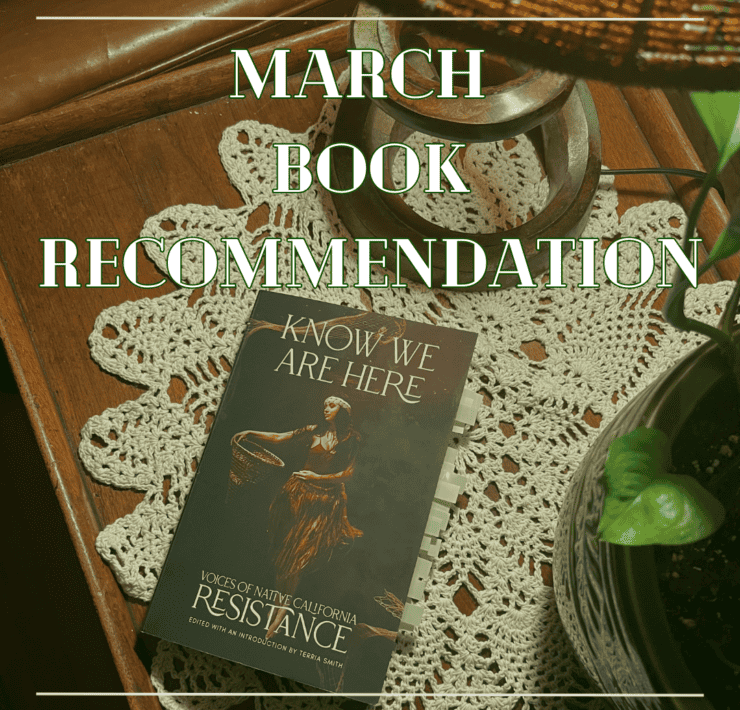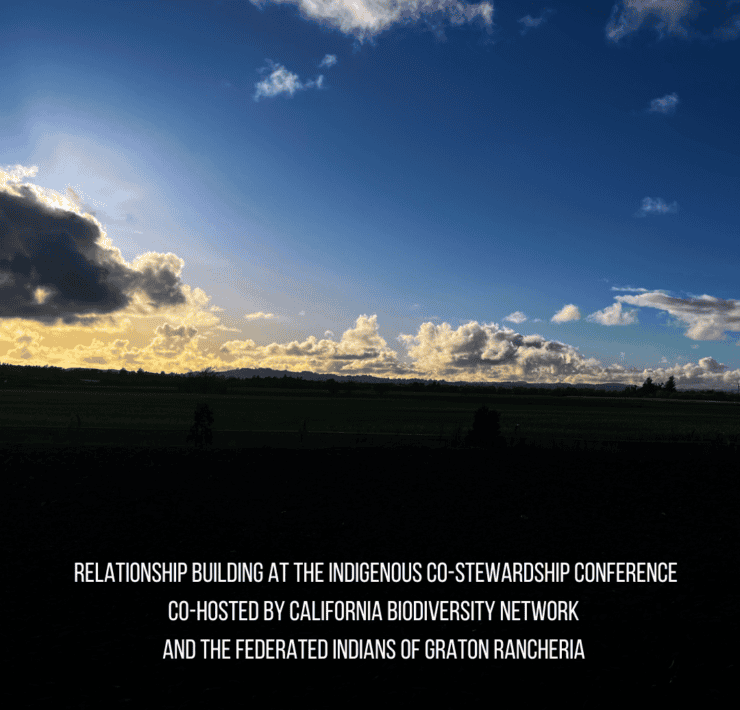Re-Indigenizing the Future: Centering Community and Decolonizing Academia

A conversation with Dr. Cutcha Risling Baldy, Cassandra May, and Delaney A. Schroeder-Echavarria about how the Rou Dalagurr Food Sovereignty Lab and Traditional Ecological Knowledge Institute at Cal Poly Humboldt came to be.
By Tavi Lorelle Carpenter
In 2019, what would eventually become the Rou Dalagurr Food Sovereignty Lab and Traditional Ecological Knowledges Institute at Cal Poly Humboldt, started as a question from Dr. Cutcha Risling Baldy, asking her Indigenous Natural Resources Management Practices* class to take their group project assignment and create something that would be tangible, lasting and community-oriented. Immediately students started interviewing Native faculty, staff and community members, including holding a public stakeholders meeting asking the question of how they could better support Indigenous peoples at Cal Poly Humboldt and what it meant to re-indigenize the campus. It was out of those conversations and discussions that the idea of a food sovereignty lab came to light.
“My question at the time was, ‘well, what’s a food sovereignty lab?’ and [the students were] like, we don’t know but that’s what [the community] want[s]. And it’s up to us to figure out what that looks like.” Dr. Risling Baldy shared during our zoom interview.
From that initial proposal of using a group project to create something lasting, to the students going into the community asking what they wanted, came a period of envisioning what this would actually look like. As it happened, a physical space was available that was ideal given its proximity to other Native-focused buildings on the campus, making it an ideal location to house a space centering Indigenous perspectives and knowledge. However, after sending in a detailed and thorough request, the Space Allocation Committee at Humboldt denied their request, claiming the lab was too specialized and didn’t consider all students.
This is perhaps not surprising given the constant strain academic institutions place themselves in when it comes to acknowledging, supporting, and standing with Indigenous peoples. Furthermore, it highlights the need for a deeper understanding from the wider community and particularly institutions that centering Indigenous voices, perspectives, and knowledge is essential for collective well-being.
This first denial highlighted the absolute need for a Food Sovereignty Lab and a space that was dedicated to the vast knowledge of Indigenous peoples that academia has long ignored out of ignorance. However, in a true show of strength, the students were not deterred.
Disappointed? Absolutely, but they continued forward, dedicated to bringing their vision to life.
Dr. Risling Baldy encouraged her students to take it to the next step, to figure out how to navigate through the bureaucratic wall they now faced.
“To [the students] credit, they spent their project time reading every policy that’s ever been passed on campus about space until one of them found a line in the policy that said, all decisions of the Space [Allocation] Committee can be appealed to the Academic Senate.”
And that was exactly what they did.
“[The students] all signed up for public comment. They each practiced their talks one right after the other. They really thought about what they wanted to say and why.”
The students showed up to the Senate and utilized their allotted 3-minutes to explain why this space should be used for a Food Sovereignty Lab. Additionally, the students, who had been so dedicated to being community-oriented, found themselves being supported by the Wiyot tribe who sent a representative letter on behalf of the Tribe in support. This speaks to the importance of building relationships and honoring the land you are on.
The Academic Senate would eventually decide in favor of the Lab but with conditions. The Lab would be required to raise all of the money necessary to redo it. It was estimated that all-in-all, it would cost a whopping $258,000.
Obstacle after obstacle was met with resiliency and a dedicated commitment to doing what they set out to do. By conducting outreach, hosting fundraisers, and writing letters, these tenacious students, community allies, and, of course, the never-yielding Dr. Risling Baldy raised $258,000 in a little over four months.
I’ve considered how, at any point, one might get discouraged by the challenges presented at seemingly every turn. It takes incredible courage and strength not to get deterred and to understand that though there are hurdles, the dream is worth the effort.
Now in 2024, The Rou Dalagurr Food Sovereignty Lab and Traditional Ecological Knowledges Institute is thriving with a plethora of projects, collaborations and truly at the forefront of decolonizing education and research.
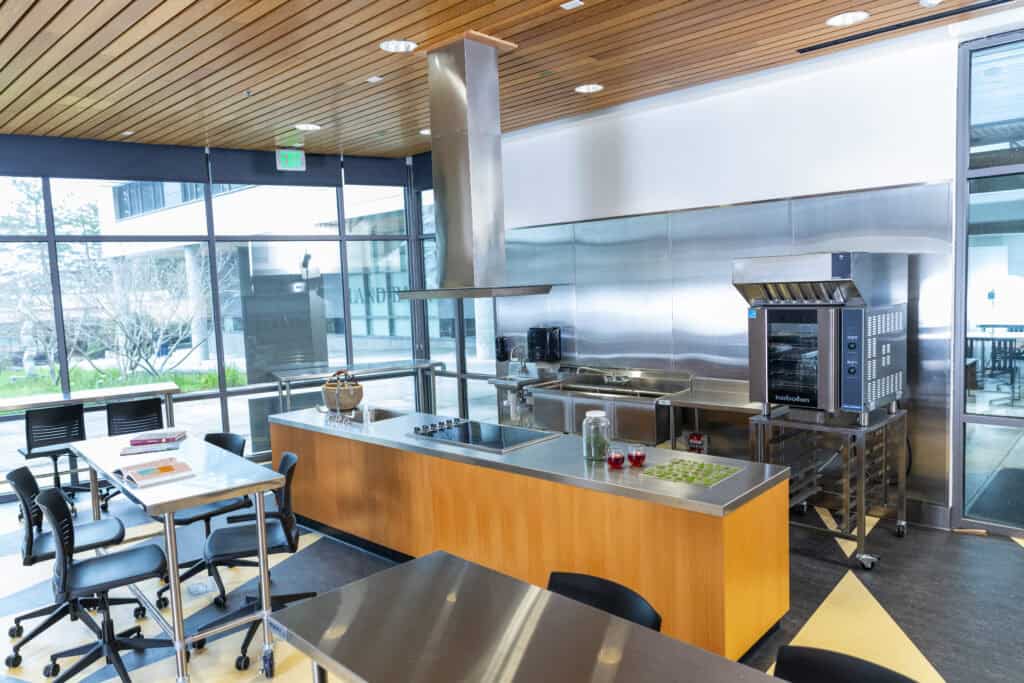
“We’ve been able to really build a vision of what we now call the Food Sovereignty Lab and Traditional Ecological Knowledge Institute. It really is an opportunity for us to bring together all different kinds of knowledge holders to be able to work in food sovereignty, Indigenous sciences, and land management. The relationships that we build with land and more than human relatives-it’s bringing to the forefront Indigenous knowledges. It’s also creating a visionary space for students and community members to come up with their own ideas about what we can do in this space.”
Dr. Risling Baldy (Hoopa Valley Tribe, Yurok, Karuk) is currently one of the co-directors of the Lab, along with Dr. Kaitlin Reed (Yurok Tribe, Hupa, Oneida).
Alongside Dr. Risling Baldy, I also spoke with Cassandra May (Yurok, Wailaki), a research associate, and Delaney A. Schroeder-Echavarria (Anishinaabe, Ojibwe Descendent), a graduate research assistant.
“I started off as a student staff member and this is my third year involved with the lab. As a student, I helped with the Food Sovereignty lab class. I did a lot of gathering and processing of traditional plants and materials. [One of] the main projects I’ve worked on is the Wiyot food boxes project, where we provided families with traditional foods, medicines and informational guides and things like that. [As well as] other branded stuff from Native companies. Outside of that, assisting with youth programming and other [programs] the lab does and needs help with” Cassandra shared in introducing herself and role within the Lab.
“I am a graduate research assistant with Dr. Risling Baldy for the Kelp Guardian Sea grant with the Tolowa Dee-ni’ Nation. I started off as an intern with the lab. The first thing I ever did with the Lab was volunteer for the first ever Indigenous Food Festival. I showed up, got a sweatshirt and absolutely loved it.” Delaney explained before further explaining that working with the lab has provided a space for her to look at ways of giving back, honoring the land she is on and supporting her connection to her own Indigeneity.
One of the projects that Cassandra and Delaney both worked on was the Wiyot Food Boxes, which offered Wiyot community members traditional Native American foods in meal boxes, including fresh produce and other products. This project includes collaborations with the Daluviwi’ Community Gardens at Blue Lake Rancheria and Potawot Community Garden at United Indian Health Services and in partnership with the Native Women’s Collective. It receives funding from the Native American Food Sovereignty Alliance and the Native Cultures Fund.
“There’s different levels to [the boxes],” Cassandra explained. “There’s products that we personally gathered and processed ourselves, there’s donations from local Native people, we have products that we purchased from people in California. Then we have products that we purchased from Native companies and people all over the United States, as well as an indigenous company from Palestine.”
There was a huge effort to prioritize what can be obtained locally, what is available from Indigenous producers in the region and globally. This included purchasing from 48 indigenous Producers and Partners and 2 non-Native producers and partners. Overall a total of 125 boxes were created and delivered with over 3,000 miles traveled, and 1,500 hours served. There was an inclusive effort to add in Native products and foods that are perhaps not culturally localized but would be familiar, as well as offering exposure to new things. At every turn, community was listened to and considered with the utmost respect and care.
The Food Sovereignty Lab has been so incredible in their transparency and diligence in sharing the work that they are doing. If you are interested in more information about the Wiyot boxes, one of their reports is featured on the Native Women’s Collective’s website where you can see all the thought and care put into this project.
One reaction to the Wiyot Food Boxes that was so moving to hear was from a community member who shared with the Lab that because of the boxes, his son had a new favorite food.
“When we did bull kelp pickling, we gave every box recipient a 8-ounce jar of bull kelp pickles. Our whole team got together and we cleaned hundreds of pounds of bull kelp, cut it, pickled it and gave it out in [the Wiyot Food Boxes]. We got an email from a [community member] who told us his son’s new favorite food is bull kelp and he went around and told all of his friends about bull kelp.” Delaney shared, going on to express that to her, this was a profound example of Indigenous joy.
This beautiful story reminded me of how important it is that our Indigenous youth be exposed to their Indigenous foods not only for health purposes but for the fact that it helps encourage one’s relationship to place and foster a sense of pride in one’s own sense of Indigeneity.
The Wiyot Food Boxes project provides one example of how the Food Sovereignty Lab tangibly integrates community and a holistic approach to knowledge and research, fulfilling their vision of re-indigenizing the campus.
Dr. Risling Baldy notes the importance of having a space where community is being centered rather than financial gain. It is offering students the opportunity to run with “a radical re-envisioning” of a future world that is centering compassion.
“If we can envision this, and we can talk about it, and we can tell a story about it, and then it comes into being, what else can we do?” Dr. Risling Baldy reflected.
Delaney added that this space is giving room to students to develop their roles in how they stand with and work within community. She noted how a lot of times, students will feel disconnected being in a colonial institution on stolen land, there is that inherent separation. But the Lab offers an example of how to make connections and build relationships.
“We have connections with tribal gardens and tribal places, and we have a lot of people [who] just want to be in community and share that space. I think being able to do that is extremely healing.”

If you take a look at the Lab’s social media platforms, you can immediately note the incredible amount of events, happenings, and opportunities for involvement. This includes a variety of modalities of engagement from creating beautiful public reports, documentaries, speaker series, events, festivals and outdoor screenings.
“We’ve been able to be so diverse in what we do because we have a number of different students and community members, who come in and they want to do very different things. So, when people come in with ideas we want to make sure that we support what that might look like.” Dr. Risling Baldy explained.
It has also been possible because the people involved with the lab make a concerted effort to engage with events going on in the wider community, making those connections and building those relationships. Dr. Risling Baldy explained that through these smaller, more grassroots efforts, partnerships are developed that help create bigger projects.
As I see it, the Lab highlights how prioritizing community, relationships, generosity, and caring offers an alternative to how research can be produced in a manner that is respectful with a positive impact serving the community rather than the resource grabbing that is often associated with academia and colonial institutions.
The Lab is also ensuring to point out and connect knowledge in a more holistic approach. For example, reflecting on how plant knowledge is tied to mental health and wellness. There is an understanding that knowledge is multifaceted and that it is possible to bridge together the ways in which all these forms interact with one another. As Dr. Risling Baldy pointed out, this is important in ensuring students, particularly Native students, are given a place that encourages interconnected ways of thinking.
The Rou Dalagurr Food Sovereignty Lab and Traditional Ecological Knowledges Institute is an example of what is possible with dedication and commitment but also fulfilling dreams that have been held by generations before. It was made clear to me that the actions taken by the Lab are based on conversations that started years prior and are possible because people continued to have these conversations and continued to dream of what is possible.

If you are interested in supporting the Lab and the incredible work they do, there are several ways to do so. One of the easiest ways to support them is by offering a financial donation, no matter the size, it all helps them continue to do their work. You can also follow them on their social media platforms, share what they are doing, attend events and volunteer when the opportunities arise.
For more information visit their website: https://nasp.humboldt.edu/fsl
And give them a follow on their Social Media Platforms:
Facebook, Instagram, and YouTube
*Now called Traditional Ecological Knowledge and Indigenous Natural Resource Management
This piece was reported and written with the support of an Ethnic Media Outreach Grant, made possible by the Stop the Hate initiative, funded by the California State Library (CSL) in partnership with the California Commission on Asian and Pacific Islander American Affairs (CAPIAA). To learn more about Stop the Hate or to report a hate incident, visit stopthehateca.org.

